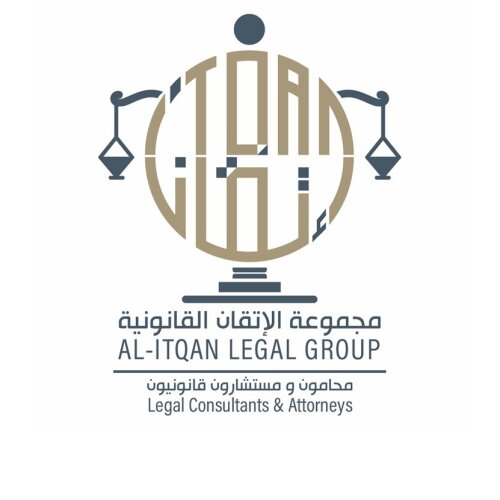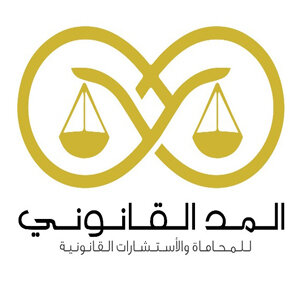Best Conveyancing Lawyers in Kuwait
Share your needs with us, get contacted by law firms.
Free. Takes 2 min.
Free Guide to Hiring a Real Estate Lawyer
Or refine your search by selecting a city:
List of the best lawyers in Kuwait
About Conveyancing Law in Kuwait
Conveyancing in Kuwait refers to the legal process by which ownership of real estate is transferred from one party to another. This process involves preparing, verifying, and executing all relevant legal documents, as well as ensuring compliance with Kuwaiti property laws and regulations. The conveyancing system in Kuwait is overseen by governmental authorities and requires adherence to specific procedures to protect the interests of both buyers and sellers. Understanding the rules and steps involved is crucial for a smooth and legally sound transaction.
Why You May Need a Lawyer
Hiring a lawyer for conveyancing matters in Kuwait is highly recommended due to the complexity and legal implications involved in property transactions. Here are some common situations where legal assistance is valuable:
- Navigating the purchase or sale of a residential or commercial property
- Drafting, reviewing, and interpreting contracts or sale agreements
- Ensuring clear and valid property ownership titles
- Managing the property registration process with local authorities
- Resolving disputes regarding property boundaries or encumbrances
- Understanding restrictions on property ownership for foreign nationals
- Facilitating inheritance-related property transfers
- Dealing with mortgages or liens attached to the property
A lawyer helps protect your rights, minimizes risks, and ensures the entire conveyancing process is executed in compliance with local laws.
Local Laws Overview
Conveyancing in Kuwait operates within a specific legal framework determined by local property and civil laws. Some key aspects include:
- The Ministry of Justice and the Real Estate Registration Department regulate property transfers and documentation.
- Only Kuwaiti nationals and, in limited situations, citizens from other Gulf Cooperation Council countries can own real estate. There are restrictions for foreign buyers, except for certain investment zones with special permissions.
- Every land or property transaction requires a formal Sales Contract, which must be notarized and registered with the appropriate authorities.
- Property titles must be checked to ensure there are no outstanding debts, liens, or fraud risks.
- Inheritance laws, especially Islamic law (Sharia), play a significant role in property transfers following a death.
- Tax implications are relatively minimal, as Kuwait does not levy typical property taxes, but there are fees associated with registration and notarization.
- Mortgage registration must also be executed with governmental oversight, and failure to comply can result in invalidation of the transaction.
Navigating these legal requirements is important for both property buyers and sellers to ensure legitimacy and avoid future disputes.
Frequently Asked Questions
What is conveyancing in Kuwait?
Conveyancing in Kuwait is the formal legal process of transferring property ownership from a seller to a buyer, including all related documentation and registration steps.
Who can own property in Kuwait?
Generally, only Kuwaiti citizens or GCC nationals can own property in Kuwait. Foreign ownership is highly restricted, except for specific areas or under government-approved conditions.
What legal documents are necessary in a property sale?
Key documents include a valid title deed, a notarized sales contract, proof of payment of all dues and fees, and, if applicable, mortgage clearance documents.
How long does the conveyancing process typically take?
The entire process can range from a few days to several weeks, depending on the complexity of the transaction and the availability of all required documents.
Are there any taxes on property transfers in Kuwait?
Kuwait does not impose direct property taxes, but registration, notarization, and administrative fees must be paid during the conveyancing process.
What risks are there if I do not use a lawyer?
You may face issues such as unclear ownership, incomplete documentation, legal disputes over property boundaries, or unintended inheritance complications.
Can foreigners participate in real estate transactions?
Foreigners are generally barred from owning property unless special government exemptions apply. However, they may lease properties under certain conditions.
How can property disputes be resolved?
Property disputes in Kuwait are settled through negotiation, arbitration, or litigation in Kuwaiti courts. A lawyer can provide guidance and represent interests in all stages.
Do I need to be present in Kuwait for the transaction?
Physical presence is generally required, but in some situations, a legal representative acting under a power of attorney can complete the transaction on your behalf.
What should I look for when choosing a conveyancing lawyer?
Select a lawyer experienced in property law, knowledgeable about local regulations, and with a good track record in successful real estate transactions.
Additional Resources
For more information or official assistance, consider the following resources:
- Ministry of Justice - Real Estate Registration Department
- Kuwait Lawyers Association
- Kuwait Municipality (baladiya) - City Planning and Building Permit Information
- Embassies and consulates for advice on foreign ownership restrictions
These bodies can provide guidance, legal forms, and the latest regulatory information relevant to property transactions.
Next Steps
If you require legal assistance with conveyancing in Kuwait, consider the following steps:
- Gather all relevant property documents, such as title deeds, personal identification, and any existing contracts.
- Prepare a list of your goals and questions regarding the transaction.
- Contact a licensed Kuwaiti lawyer specializing in property and conveyancing matters. The Kuwait Lawyers Association can help provide referrals.
- Attend an initial consultation to understand your legal rights, obligations, and the specific procedures required for your case.
- Work closely with your lawyer through each phase of the conveyancing process to ensure compliance and safeguard your interests.
Acting early and seeking expert advice can help you avoid costly mistakes and ensure your property transaction in Kuwait is secure and legally sound.
Lawzana helps you find the best lawyers and law firms in Kuwait through a curated and pre-screened list of qualified legal professionals. Our platform offers rankings and detailed profiles of attorneys and law firms, allowing you to compare based on practice areas, including Conveyancing, experience, and client feedback.
Each profile includes a description of the firm's areas of practice, client reviews, team members and partners, year of establishment, spoken languages, office locations, contact information, social media presence, and any published articles or resources. Most firms on our platform speak English and are experienced in both local and international legal matters.
Get a quote from top-rated law firms in Kuwait — quickly, securely, and without unnecessary hassle.
Disclaimer:
The information provided on this page is for general informational purposes only and does not constitute legal advice. While we strive to ensure the accuracy and relevance of the content, legal information may change over time, and interpretations of the law can vary. You should always consult with a qualified legal professional for advice specific to your situation.
We disclaim all liability for actions taken or not taken based on the content of this page. If you believe any information is incorrect or outdated, please contact us, and we will review and update it where appropriate.
Browse conveyancing law firms by city in Kuwait
Refine your search by selecting a city.
















